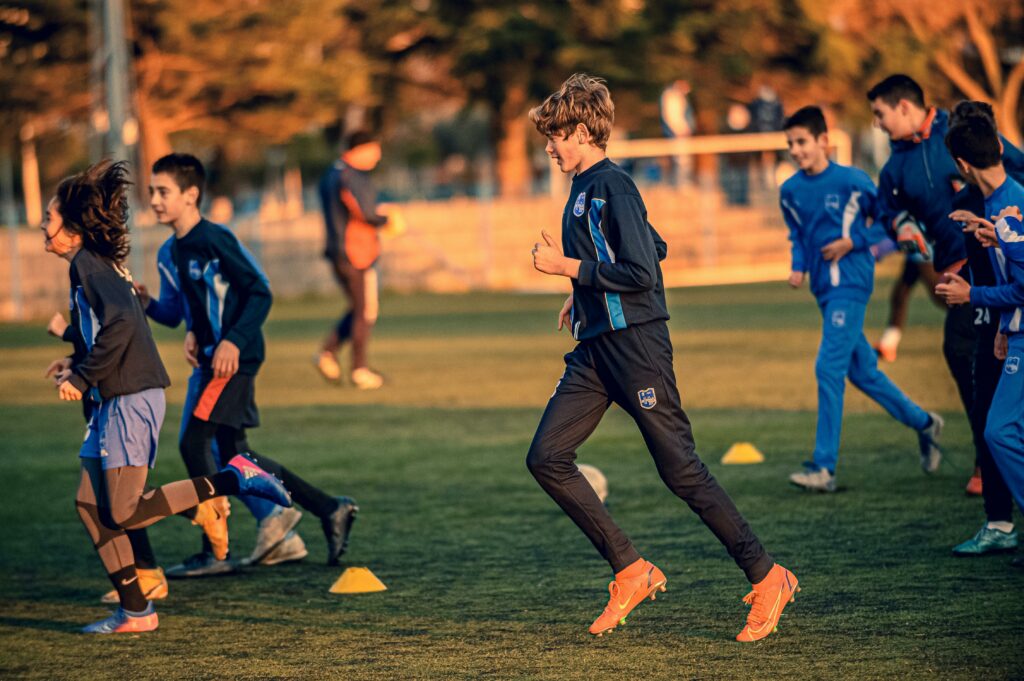Today, society is sounding the alarm. Headlines overflow with words like burnout, anxiety, and the great exhaustion, reflecting an adult world struggling to cope. At the same time, our children are growing up in a high-pressure digital landscape. They face academic expectations, social pressures, and constant information overload.
As the conversation shifts, one truth becomes clear:
Performance in school, in sports, and in life, depends on mental well-being.
This article goes beyond identifying the challenge. It offers a practical playbook to build mental fitness in children. With the right tools, kids can become resilient, focused, and emotionally intelligent and build skills that support lifelong success.
Why your child’s mind Is the most important muscle to train?
Mental fitness for children is not only about solving emotional problems. Instead, it is about proactively strengthening their mind, just like we strengthen their bodies or creativity through sports and music.
When we intentionally teach kids to manage emotions, handle stress, and build confidence, we set them up to thrive. As a result, a mentally strong child is better able to bounce back from disappointment, navigate conflicts, and stay focused during learning.
Simply put, mental strength is the foundation of long-term performance and long-term happiness.
Three simple mental fitness strategies you can start today!
Fortunately, nurturing mental fitness does not require a psychology degree. With consistent daily habits, you can help children build emotional and cognitive strength.
Below are three effective, easy-to-implement strategies:
1. Name the monster: the “Feelings Check-In” ritual
Emotional awareness is the cornerstone of mental fitness. Many children express frustration through behavior because they lack the words to describe what they feel.
To help, create a daily “feelings check-in.” Ask:
“What feeling was biggest for you today?”
Normalize every response like happiness, jealousy, anger, boredom….etc… When children name emotions, they learn that feelings are not good or bad. They are simply messages from the mind.
This simple ritual builds self-awareness and prevents small emotions from turning into big reactions.
2. Build the mental gym: mindfulness as a game
In a world full of distractions, focus is a superpower. Mindfulness trains attention, but it must feel fun, especially for kids.
Introduce mindfulness as a playful challenge. Apps like Calm or Headspace offer child-friendly exercises. Try a breathing buddy: place a stuffed toy on your child’s stomach and watch it rise and fall.
Just a few minutes a day can improve attention, reduce impulsivity, and teach calm under pressure.
3. Reframe the story: use the “Power of Yet”
Children often believe they are “bad at math” or “not good readers.” This fixed mindset limits growth. When a child says, “I can’t do this,” pause and add one word:
“Yet.”
Celebrate effort, strategy, and perseverance, not just success. This approach turns challenges into opportunities and fuels resilience.
Over time, children learn they can grow stronger through practice, not perfection.
Your role as the head coach
Parents, teachers, and coaches serve as the head coaches of mental fitness. Our role is not to protect children from every challenge, but to prepare them to navigate challenges confidently.
When we prioritize mental fitness with the same commitment we give academics or sports, we do more than improve daily life. We provide children with an enduring edge such as resilience, confidence, and emotional strength that lasts a lifetime.
Helpful Tools & Resources
- Calm App — Offers “Calm Kids” sleep stories, meditations, and breathing exercises
https://www.calm.com - Carol Dweck’s TED Talk — The power of believing that you can improve
Growth mindset explained in a powerful, kid-friendly way
https://www.ted.com/talks/carol_dweck_the_power_of_believing_that_you_can_improve

